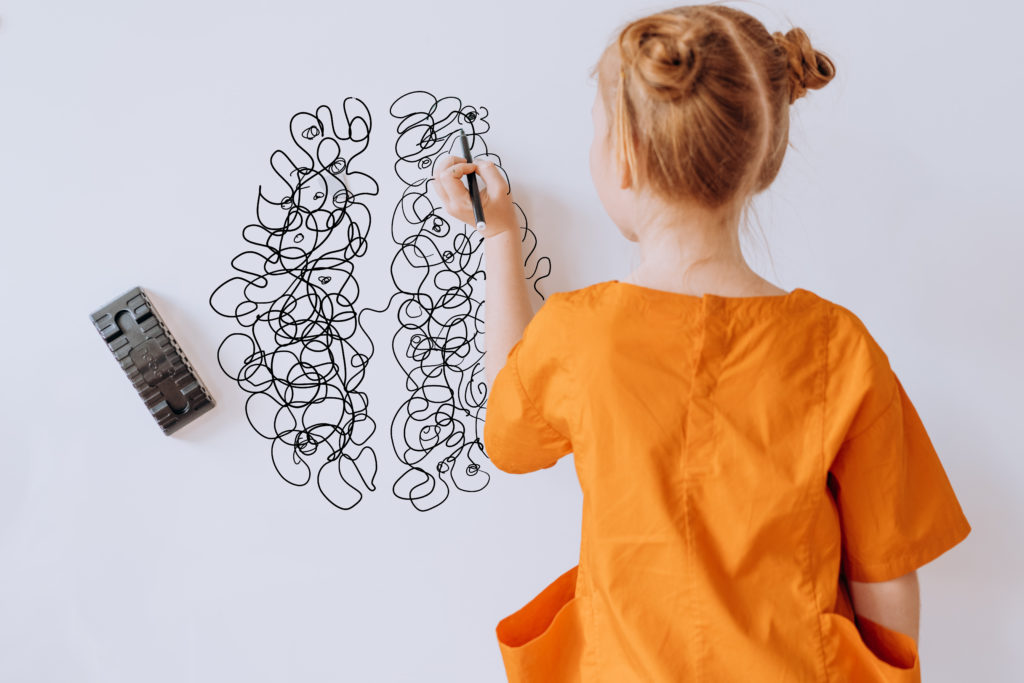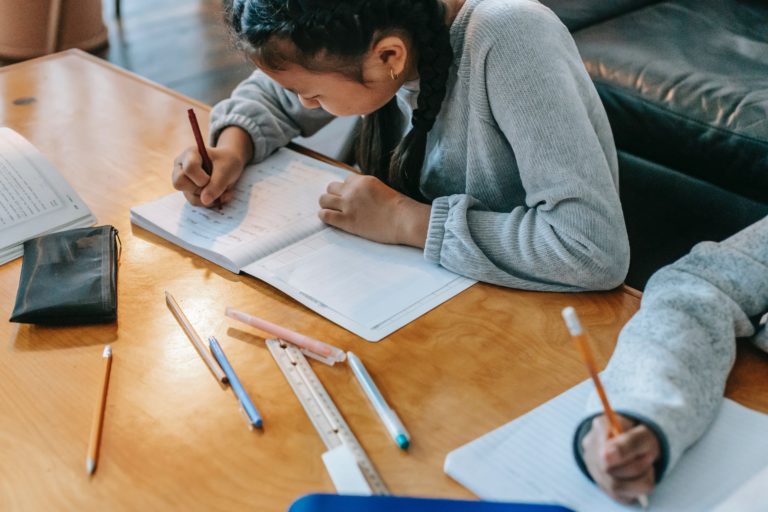So your child hates maths…why?
When your child avoids maths, it says one thing. They’ve lost the belief that they can get better. It’s never too late to help nurture the right mindset and boost your child’s maths confidence.
Here’s a scenario.
Your child goes to school and sees other kids in class putting up their hands—they know the answer to the maths question—they always know the answers. They’re good at maths.
In reality, the kids who know how to answer the maths question, have already learnt it…either at school, at home or at tuition. They’ve worked hard and practiced, so they know how ‘to do’ maths. And that’s why they’re ‘good at maths’.
Your child doesn’t know this.

To them it feels like…”everyone is better at maths than me.”
“I’m never going to be good at maths.” turns into, “I hate maths.”
Your child’s confidence crumbles because they think they’re not as good as their peers. They believe they’re not naturally good at maths and therefore will never be good at maths.
In my own experience and talking with many parents, I hear this scenario over and over.
So how can you change this thinking?
“You’re great at this. You’re a natural”
“You came first. Great job!”
“That was easy for you. You’re so smart.”
Have you ever used one of these praises? I’ll admit I’ve used them in the past.
Let’s be honest, who doesn’t like to hear these praises directed at them. It feels good.
But these praises that focus on intelligence, ability or outcome, will have an impact on how a child responds to challenges or setbacks.
Because when you’re told you’re smart, you’re a natural or you’re a great at it…you start to identify with these labels and accept them as part of your identity.
Then when you get things wrong or when things become a struggle, it’s a threat to your identity.
This is fixed-mindset thinking.
Based on research by psychologist and Stanford University researcher, Dr Carol Dweck, on mindsets, a fixed mindset is when you believe your current ability, intelligence and personality are set. You’re born with it and it can’t be changed over time.
Any struggle is seen as the result of a personal flaw. You’re more likely to shy away from things that make you look dumb or stupid.
And you avoid negative feedback because it’s a threat to your intelligence and ability.
So when you make mistakes or get things wrong, it’s a sign that you don’t have the natural ability after all.
If you believe you don’t have the natural ability in maths and you can’t change, then why even try?
Dweck points out common fixed mindset triggers include having to work hard, facing difficulties, getting negative feedback, being challenged, and seeing success in others.
Why adopt a growth mindset
So what is a growth mindset? Dweck describes a growth mindset is when you believe you can learn and change over time with effort, seeking out new strategies and ongoing learning. You are motivated by developing and improving rather than protecting yourself from possible failure.
So any negative feedback, setbacks or hurdles are seen as opportunities to learn. You are open to challenges because you are more interested in growth than protecting your current abilities or identity.
Researchers have shown the relationship between year 10 children’s mindsets and the performance on a national achievement test in Chile. Children who held a growth mindset were three times likely to score in the top 20%, and those who held a fixed mindset were 4 times likely to score in the bottom 20%.
Your child’s mindset really do matter.

1. Teach your child to think differently about their mind
When my daughter was starting Year 1, I came across MindUp which is a mind fitness program for kids using neuroscience, mindful awareness, positive psychology and social-emotional learning. We went through their book, MindUp Curriculum Grades K-2.
It taught my daughter the structure and function of the brain and nervous system at a level a child can understand. She learnt about the concept of neuroplasticity—the brain’s ability to continually change and adapt. How our experiences and actions can change our neural pathways.
Just like a muscle, the more you work out your brain, the stronger the connections within it become. Over time, repeating practices can strengthen neural pathways in positive ways.
– MindUp
Teaching your child they have control over growing and changing their brains through their actions, empowers them and boost their self-confidence.
2. Model growth-mindset beliefs and thinking
We as parents are the models. What we do and say matters. Have you ever said:
“I can’t cook.”
“I’m not good at public speaking.”
This sends a message to your child that abilities are innate which supports fixed mindset beliefs. Instead model growth mindset thinking.
“I’m going to take a cooking class so I can learn how to cook.”
“I need more practice in public speaking.”
We can also model growth mindset by learning something new, working to develop a new skill or improving a skill that was seen as a weakness.
When we make mistakes or struggle at something, point out what we learnt from doing them. Highlighting mistakes and failures as part of the learning process will change how your child view their own learning.
3. Use growth mindset language
Everyday interactions with your child can support or undermine growth-mindset thinking. So when your child says, “I don’t know my times tables.”
Acknowledge them, “Yes you don’t know your times tables yet. Let’s see how you can learn it.” Then help them find the best strategies to learn the times tables.
Or when your child says, “Sophie’s really smart. She’s always in the top maths class.”
Point out, “Sounds like Sophie has worked hard and practiced a lot of maths. What can you do to improve your maths?”

4. Be mindful when praising your child
Focus praises on processes and outcomes as a result of your child’s hard work. Praises need to be specific, genuine and timely.
“You’ve worked hard on your maths, and now you can answer all the questions.”
“You’ve stretched your mind by doing the hard questions. That was a good use of your time.”
“You’ve practiced your times tables and now it’s easier for you to do your multiplications.”
“I like the way you used different strategies on that maths problem until you solved it.”
Also praise effort, hard work, persistence, rising to a challenge, learning from a mistake, and seeking out different strategies.
Growth-mindset applies to other areas of life, think about sports, musics, art etc.
Use everyday interactions to support a growth mindset. And have ongoing conversations about learning. Dweck suggest the following questions:
- What did you do today that was challenging?
- How can you learn from this?
- What mistakes did you make that taught you something?
- Well if that didn’t work, what else could you try?
Key takeaway
Help your child understand why effort, using the right strategies, and seeking good advice are essential in developing their intelligence.
By adopting a growth mindset, your child will see failures and mistakes as opportunities to learn and grow.
Children adopt a growth mindset when adults focus praise on process rather than ability. Download MindsetWorks Say This, Not That for ideas.
Use everyday interactions with your child to supports a growth mindset.
Researchers have found that one way to help develop a growth-mindset is by teaching children about neuroscience which shows the brain’s plasticity.
Teaching your child they have control over growing and changing their brains through their actions, empowers them and boost their confidence.






